A high standard for lowering blood pressure.
The Paradise® Ultrasound Renal Denervation (RDN) system offers a high standard of therapy, harnessing the power of ultrasound energy to treat uncontrolled hypertension.
Hypertension remains a leading cause of cardiovascular issues, including heart failure, stroke, coronary heart disease, and more. And control rates around the globe are declining.
1.28B*
Adults globally
1 in 5*
Controlled
Paradise Ultrasound RDN treats hypertension by ablating the nerves around the renal arteries, disrupting the overactive sympathetic nerves that can cause hypertension.
*World Health Organization; https://www.who.int/news-room/fact-sheets/detail/hypertension accessed on 7/09/2023
Designed to deliver.
With exclusive features designed to ensure a safe and effective procedure, the Paradise system offers a proven therapy option to lower your patients’ blood pressure.1-3
SonoWave 360™ transducer
The Paradise system’s SonoWave 360 transducer delivers a complete 360-degree ring of energy4, reaching approximately 80 percent5 of the sympathetic nerves around the renal artery.
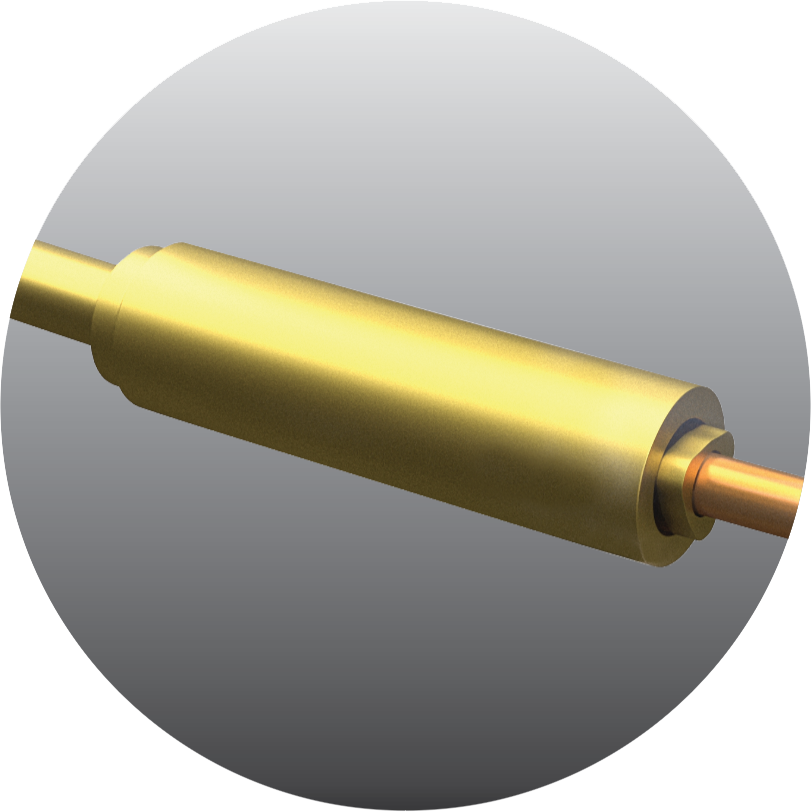
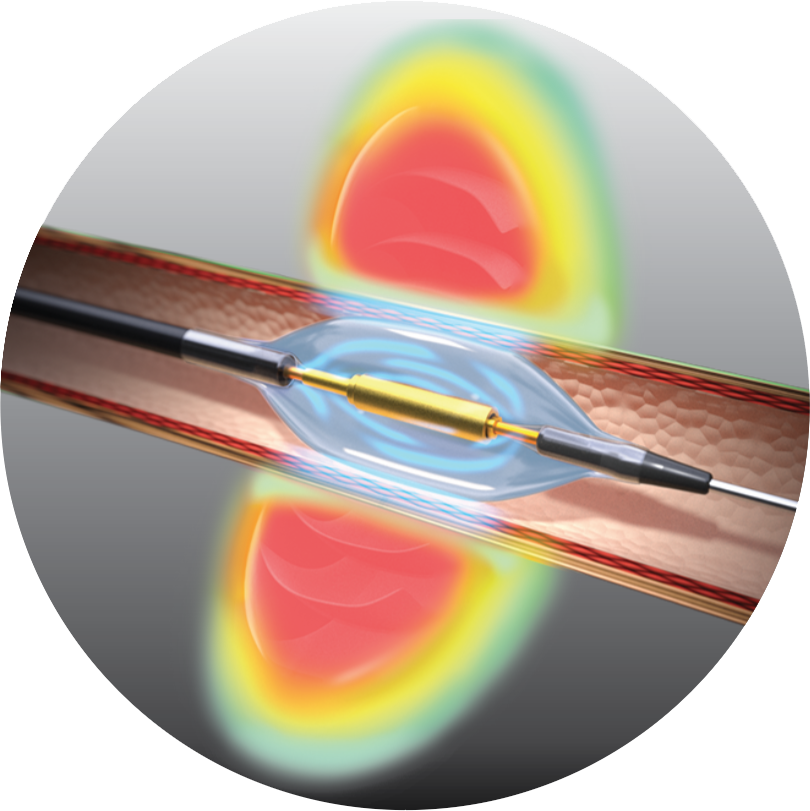
7-second energy delivery
Each delivery of ultrasound energy is just 7 seconds, and only 2-3 treatments per main renal artery are needed.* With the Paradise system, treating the distal branches is never required.4
* Treatment site may vary with anatomy. Please refer to Paradise Catheter IFU for treatment strategy.
HydroCooling™ system
Only the Paradise system provides energy delivery with no contact by the transducer, and the HydroCooling system circulates sterile water through the balloon during the procedure for a cooling effect that helps protect the arterial wall.6
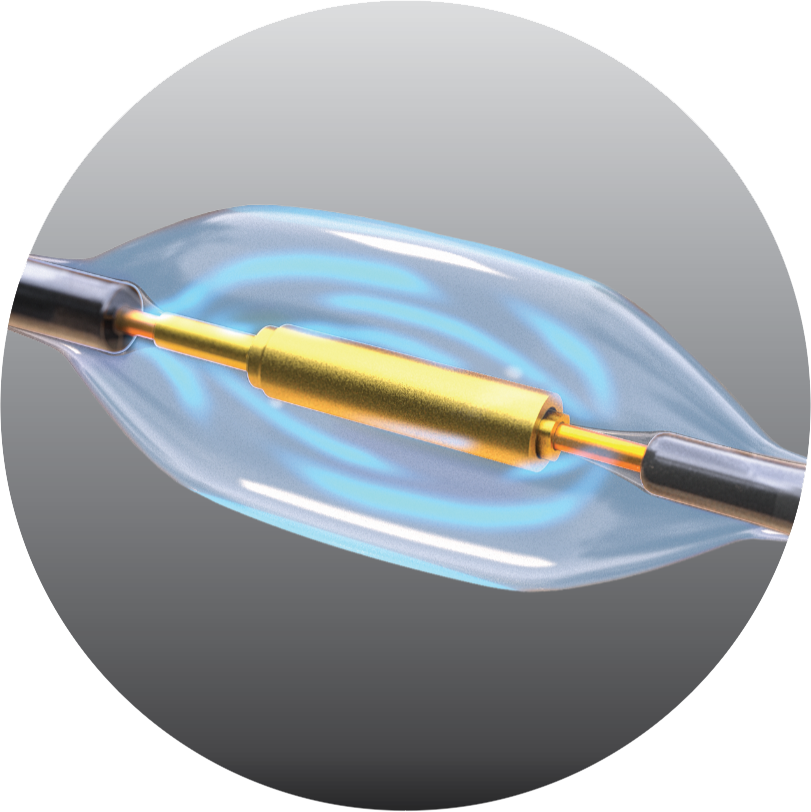
Robust, durable results.
Deliver a lasting treatment for uncontrolled or resistant hypertension — proven safe and effective across several clinical trials.1-3,8
Off Medication
On Medication
Uncontrolled Hypertension
Resistant Hypertension
RADIANCE™ RCTs
combined results
–10.4mmHg
office systolic blood
pressure at 2 months8
Met all primary
endpoints in
3/3
U.S. randomized
controlled trials1-3
RADIANCE II
pivotal trial
Zero
Major Adverse Events
At prespecified follow-up
Made for efficiency.
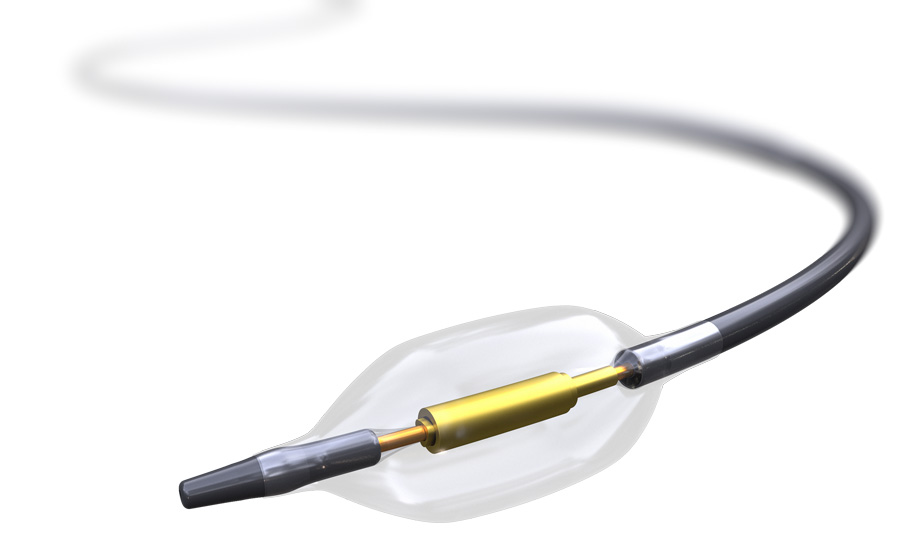
State-of-the-art Catheter4
- SonoWave 360 transducer
- Non-compliant balloon with HydroCooling system
- Atraumatic tip for patient safety
Intuitive Generator4
- Simple, user-friendly interface with ultra-efficient workflow
- Automatic energy level customized to the patient’s anatomy
- Hand-held remote to perform procedure from sterile field
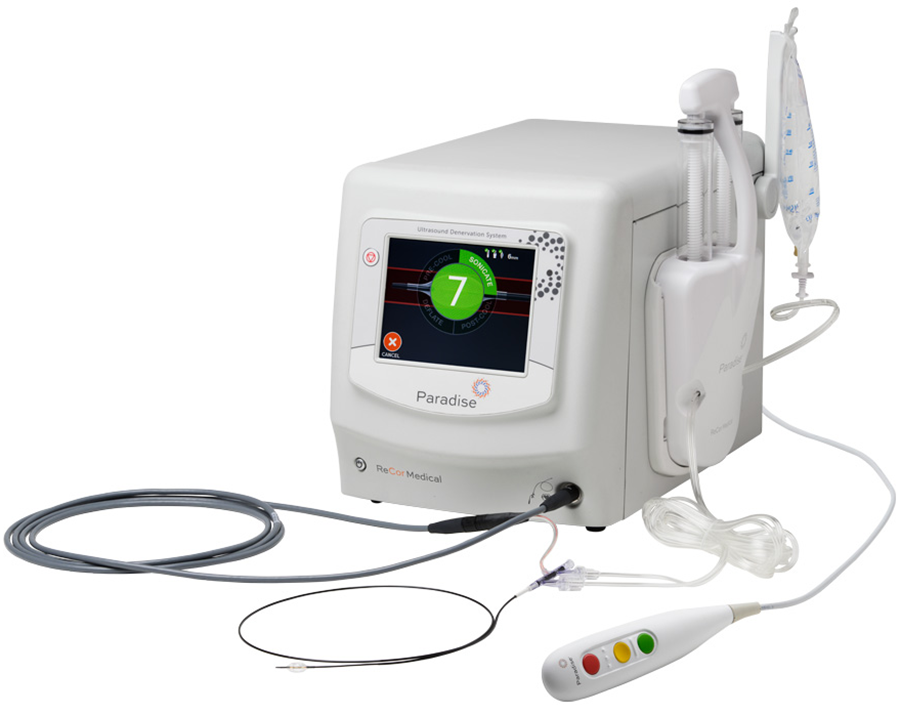
References
- Azizi et al. JAMA. 2023;329(8):651-661
- Azizi et al. Lancet. 2018 Jun 9;391(10137):2335-2345.
- Azizi et al. Lancet. 2021 Jun 26;397(10293):2476-2486.
- Data on file. Recor Medical. Inc.
- Mahfoud et al. JACC. 2014; 64(7):644-646.
- Pathak et al. EuroIntervention. 2015 Aug;11(4):477-84
- Fengler et al. JACC: Cardiovascular Interventions,2023, Feb 13 :359-369
- Kirtane et al. JAMA Cardiol. 2023;8(5):464-473
- Renal arteries diameter <3 mm and >8mm
- Renal artery Fibromuscular disease (FMD)
- Stented renal artery
- Renal artery aneurysm
- Renal artery diameter stenosis >30%
- Pregnancy
- Presence of abnormal kidney (or secreting adrenal) tumors
- Iliac/femoral artery stenosis precluding insertion of the catheter
- Failure to use the recommended balloon size may result in renal artery stenosis, dissection, perforation, aneurysm, significant vasospasm requiring intervention, ablation of unintended tissues or structures, and/or no ablation of target tissue achieved.
- Energy emission in an unintended location may result in unintended tissue damage.
- Do not move the Paradise Catheter during sonication.
- Do not sonicate in renal artery at locations with visible plaque.
- Do not deliver sonications in an overlapping arterial target zone.
- Patients with known allergy to contrast medium may be at increased risk of hypersensitivity reactions.
- Only use specified coolant (Sterile water) for fluid supply. DO NOT USE SALINE.
- Avoid multiple balloon inflations to achieve apposition of the balloon to the renal artery wall; multiple balloon inflations may result in increased vessel trauma.
- The Paradise Catheter is for single use only. Do not resterilize or reuse. Reuse, reprocessing, or resterilization will compromise device integrity which may result in patient injury, illness, or death.
- Do not touch the Paradise Catheter balloon during sonication, as it may result in serious injury.
- The Paradise System may interfere with or adversely affect the operation of cardiac pacemakers or other active implants, unless proper precautions have been taken or managed per the manufacturer’s instructions. When in doubt regarding possible hazards, seek qualified advice and/or consult with the manufacturer(s) prior to initiating a procedure. The Paradise Catheter is a Type CF, defibrillation-proof Applied Part.